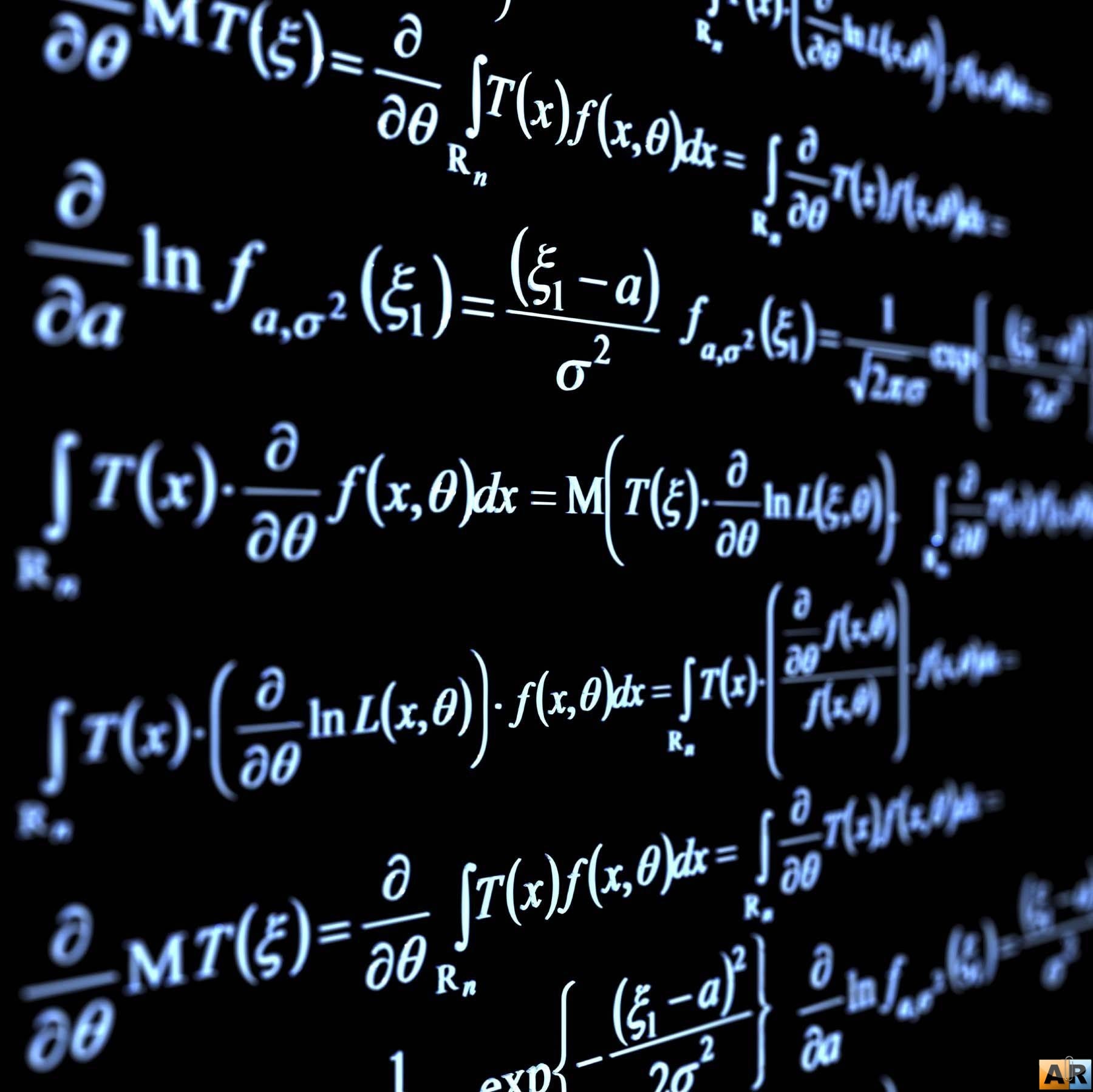Understanding Calculus: An Introduction to the Fundamental Concepts
Calculus is a branch of mathematics that deals with the study of rates of change and accumulation of quantities. It provides a framework for understanding and analyzing various phenomena in the natural and social sciences, as well as engineering and economics. From predicting the motion of planets to optimizing business strategies, calculus plays a crucial role in modeling and solving real-world problems.
What is Calculus?
At its core, calculus is concerned with two main concepts: differentiation and integration.
Differentiation involves the study of how quantities change with respect to one another. It focuses on finding the rate at which one quantity changes concerning another. For example, if you are interested in determining the speed of a moving car at any given moment, you would use differentiation to find its instantaneous velocity.
Integration, on the other hand, deals with the accumulation of quantities over an interval. It is essentially the reverse process of differentiation. Integration allows us to find the total amount of a quantity, such as the area under a curve or the total distance traveled, by considering infinitesimally small pieces of the whole.
Why Study Calculus?
Calculus is a foundational subject in mathematics with wide-ranging applications in various fields. Here are some reasons why studying calculus is important:
- Understanding Change: Calculus provides a precise language for describing and analyzing how quantities change over time or space. This understanding is crucial in fields such as physics, engineering, and economics.
- Optimization: Calculus enables us to find optimal solutions to problems, such as maximizing profits, minimizing costs, or optimizing processes. Businesses use calculus to make informed decisions and improve efficiency.
- Predictive Modeling: Many natural phenomena, from population growth to the motion of celestial bodies, can be modeled using calculus. By understanding the underlying mathematical principles, we can make predictions and extrapolate future trends.
- Technological Innovation: Calculus plays a vital role in the development of technologies and advancements in fields like robotics, computer science, and telecommunications. It provides the mathematical foundation for designing algorithms, control systems, and signal processing techniques.
Components of a Calculus Course
A typical calculus course is divided into two main parts: differential calculus and integral calculus.
Differential Calculus focuses on concepts such as limits, derivatives, and applications of derivatives. Students learn how to calculate slopes of curves, rates of change, and solve optimization problems.
Integral Calculus covers techniques of integration, including definite and indefinite integrals, as well as applications such as finding areas, volumes, and solving differential equations.
Why Pursue a Career in Calculus: Exploring Opportunities and Benefits
Calculus, often regarded as the pinnacle of mathematical studies, offers a plethora of career opportunities and benefits for those who choose to specialize in this field. Whether you have a passion for solving complex problems, analyzing data, or contributing to technological advancements, a career in calculus can be both rewarding and intellectually stimulating.
The Versatility of a Calculus Career
One of the key advantages of pursuing a career in calculus is its versatility. Here are some compelling reasons why individuals choose to build their careers in this field:
- Problem-Solving Skills: Calculus equips individuals with powerful problem-solving skills that are highly sought after in various industries. The ability to analyze complex systems, optimize processes, and make data-driven decisions is invaluable in fields such as engineering, finance, and technology.
- High Demand: As technology continues to advance and data becomes increasingly abundant, there is a growing demand for professionals with strong quantitative skills. Employers across industries are seeking individuals who can apply mathematical concepts, including calculus, to solve real-world problems and drive innovation.
- Impactful Contributions: Calculus plays a vital role in advancing scientific research, engineering projects, and technological developments. Whether it’s designing algorithms for autonomous vehicles, modeling climate change scenarios, or optimizing financial strategies, professionals in calculus make meaningful contributions to society.
- Intellectual Challenge: For those who thrive on intellectual challenges and enjoy exploring abstract concepts, a career in calculus offers endless opportunities for growth and discovery. From tackling unsolved mathematical problems to developing cutting-edge algorithms, there is always something new to learn and explore in this dynamic field.
Career Opportunities in Calculus
The range of career opportunities available to individuals with expertise in calculus is vast and diverse. Some common career paths include:
- Mathematician: Mathematicians conduct research, develop mathematical theories, and solve complex problems across various fields, including pure and applied mathematics.
- Data Scientist: Data scientists analyze large datasets to extract insights, identify trends, and make data-driven decisions. Calculus skills are essential for understanding and modeling complex data relationships.
- Engineer: Engineers use calculus to design and optimize systems, structures, and processes in fields such as civil engineering, mechanical engineering, and aerospace engineering.
- Financial Analyst: Financial analysts utilize calculus to develop models for pricing derivatives, assessing risk, and optimizing investment portfolios in the finance industry.
- Computer Scientist: Computer scientists apply calculus concepts to develop algorithms, design software, and solve computational problems in areas such as artificial intelligence, machine learning, and computer graphics.
Exploring the Breadth of Subjects in Calculus Education
Calculus, as a foundational branch of mathematics, encompasses a wide range of topics that provide essential tools for understanding and analyzing continuous change and accumulation. From the study of functions and their properties to the applications in various fields, the subjects covered in calculus education are diverse and interconnected, laying the groundwork for advanced mathematical reasoning and problem-solving skills.
Core Subjects in Calculus Education
- Limits: Limits serve as the foundational concept in calculus, providing the framework for understanding continuity, derivatives, and integrals. They allow mathematicians to analyze the behavior of functions as they approach certain values and are essential for the development of calculus principles.
- Differentiation: Differentiation focuses on the study of rates of change and slopes of curves. Students learn how to calculate derivatives of functions, interpret their meaning in real-world contexts, and apply differentiation techniques to solve optimization and related rate problems.
- Integration: Integration is the inverse process of differentiation, involving the accumulation of quantities and the calculation of areas under curves. Students explore techniques for finding definite and indefinite integrals, as well as applications such as finding areas, volumes, and solving differential equations.
- Applications of Derivatives: This subject area explores the practical applications of derivatives in various fields, including physics, economics, and engineering. Topics may include optimization problems, related rates, curve sketching, and linear approximation.
- Applications of Integrals: Similarly, applications of integrals extend calculus concepts to solve real-world problems involving accumulation and measurement. Students learn to calculate areas between curves, volumes of solids of revolution, and work done by forces.
- Multivariable Calculus: Multivariable calculus extends the principles of calculus to functions of several variables. Students study topics such as partial derivatives, multiple integrals, vector calculus, and applications in fields like physics and engineering.
- Differential Equations: Differential equations involve equations that relate a function to its derivatives. Students learn to classify differential equations, solve ordinary and partial differential equations, and apply them to model dynamical systems in various disciplines.
- Vector Calculus: Vector calculus deals with vector-valued functions and their derivatives, gradients, curls, and divergence. It is fundamental in fields such as electromagnetism, fluid dynamics, and mechanics.
Beyond the Core
In addition to these core subjects, calculus education often includes supplementary topics that deepen students’ understanding and broaden their mathematical skills. These may include:
- Sequences and Series
- Parametric and Polar Equations
- Taylor and Maclaurin Series
- Improper Integrals
- Vector Fields and Line Integrals
Top Universities for Studying Calculus: A Guide to Excellence in Mathematical Education
Choosing the right university to pursue a degree in calculus can significantly impact your academic and professional journey. As one of the foundational branches of mathematics, calculus education at top universities offers rigorous coursework, esteemed faculty, and unparalleled research opportunities. In this article, we explore some of the leading institutions renowned for their excellence in calculus education.
Massachusetts Institute of Technology (MIT)
MIT consistently ranks among the top universities for mathematics and is renowned for its rigorous curriculum and cutting-edge research in calculus and related fields. The Department of Mathematics offers a comprehensive range of courses in calculus, differential equations, and advanced topics, taught by world-class faculty members who are experts in their respective fields.
Stanford University
Stanford University’s Department of Mathematics boasts a rich tradition of excellence in mathematical education and research. Students at Stanford have access to a diverse array of calculus courses, ranging from introductory to advanced levels, as well as opportunities for interdisciplinary collaboration and hands-on research experiences.
Harvard University
Harvard University is home to one of the oldest and most prestigious mathematics departments in the world. With renowned faculty members, state-of-the-art facilities, and a vibrant academic community, Harvard offers a stimulating environment for students interested in studying calculus and pursuing research in mathematical sciences.
Princeton University
Princeton University’s Department of Mathematics is renowned for its groundbreaking research and innovative teaching methods. The calculus curriculum at Princeton covers a wide range of topics, including real analysis, differential equations, and geometric analysis, providing students with a solid foundation in mathematical theory and applications.
University of Cambridge
The University of Cambridge in the United Kingdom is synonymous with academic excellence and is consistently ranked among the top institutions for mathematics worldwide. The Department of Pure Mathematics and Mathematical Statistics offers a rigorous and comprehensive program in calculus, with a focus on theoretical rigor and practical applications.
California Institute of Technology (Caltech)
Caltech’s Division of Physics, Mathematics, and Astronomy is renowned for its world-class faculty and groundbreaking research in mathematical sciences. The calculus curriculum at Caltech emphasizes both theoretical rigor and practical applications, preparing students for careers in academia, industry, and beyond.
University of Oxford
The University of Oxford, located in the United Kingdom, is internationally recognized for its academic excellence and research contributions in mathematics. The Mathematical Institute at Oxford offers a rigorous curriculum in calculus, algebra, analysis, and applied mathematics, taught by distinguished faculty members.
University of California, Berkeley
UC Berkeley’s Department of Mathematics is renowned for its world-class faculty, innovative research, and rigorous academic programs. The calculus curriculum at Berkeley covers a wide range of topics, including multivariable calculus, differential equations, and mathematical analysis, providing students with a comprehensive understanding of mathematical theory and applications.
Princeton University
Princeton University’s Department of Mathematics is renowned for its groundbreaking research and innovative teaching methods. The calculus curriculum at Princeton covers a wide range of topics, including real analysis, differential equations, and geometric analysis, providing students with a solid foundation in mathematical theory and applications.
University of Cambridge
The University of Cambridge in the United Kingdom is synonymous with academic excellence and is consistently ranked among the top institutions for mathematics worldwide. The Department of Pure Mathematics and Mathematical Statistics offers a rigorous and comprehensive program in calculus, with a focus on theoretical rigor and practical applications.
ETH Zurich (Swiss Federal Institute of Technology)
ETH Zurich, located in Switzerland, is one of the leading universities in the world for mathematics and science. The Department of Mathematics at ETH Zurich offers a challenging and innovative curriculum in calculus, differential equations, and mathematical analysis, preparing students for careers in academia, industry, and research.
University of Chicago
The University of Chicago’s Department of Mathematics is known for its rigorous academic programs, distinguished faculty, and groundbreaking research contributions. The calculus curriculum at UChicago emphasizes both theoretical rigor and practical applications, providing students with a solid foundation in mathematical theory and problem-solving skills.




